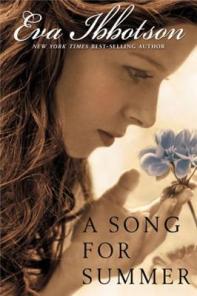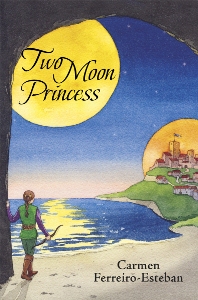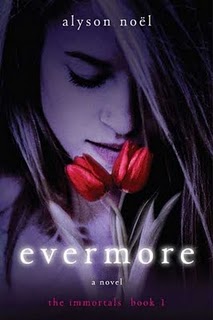This review contains affiliate links, which earn me a small commission when you click and purchase, at no extra cost to you. Thank you for supporting my small business and allowing me to continue providing you a reliable resource for clean book ratings.
Dragonfly has a lot going on; I’m going to do my best to summarize it without giving too much away. A lot of the enjoyment I had with it resulted from not knowing where it was going next.
Taoshiri was just a goat girl in the furthest reaches of the Blue Crescent Islands until, one day four years ago, she was chosen to be the fourth of the Four Crown Princesses. She was surprised, of course, but accepted the Mother Goddess’s will, trying to be the best princess she could. Then, because of impending war with a bloodthirsty emperor, she’s sent to Gerfal to marry the crown prince Ramil. Not exactly something Taoshiri wants to do, especially when, once she gets there, she finds Ramil to be uncouth, rude and plain unattractive.
Then — because you know these sorts of things have to happen — they were kidnapped, thrown into all sorts of unpleasant situations, and forced to fight for their lives and their countries.
I won’t give away much more than that, because the twists and turns are quite delightful. As is the relationship between Taoshiri and Ramil. But I think what really made this novel (which I’m still trying to decide whether it was too wordy or just right, and probably wasn’t all that well-written but I really didn’t care) were the layers of political positioning and religious discussion that went on. It was never spelled out, exactly, but Julia Golding spent a lot of time with religious tolerance and prejudices, with an underlying heartfelt plea for understanding.
Much of the conflict in the novel comes from the snap judgments people make about different cultures, in this case the Goddess-worshiping Western culture of the Islands (as opposed to the God-worshiping Eastern cultures). Golding also flips the racial divide: the strangers are the fair-haired, fair-skinned ones, standing out in a darker culture. Though there is some brutality in the Eastern religions, one is never led to believe that worshiping one God (or Goddess) is better than the other, something I found refreshing.
As for the politics, Golding spent time balancing the love story with the duties a ruler has to take for the good of the state. It was an interesting balance, and I think she managed to play it all out quite well.
One final note: this is a fantasy only because it’s set in the past, in a made-up land. There’s no magic, just adventure, wits, and some grand action. Which made it a lot more fun that I was expecting.
Rated: Mild for violence, some talk of sex, and a few mild swear words.
Click here to purchase your copy of Dragonfly on Amazon.




